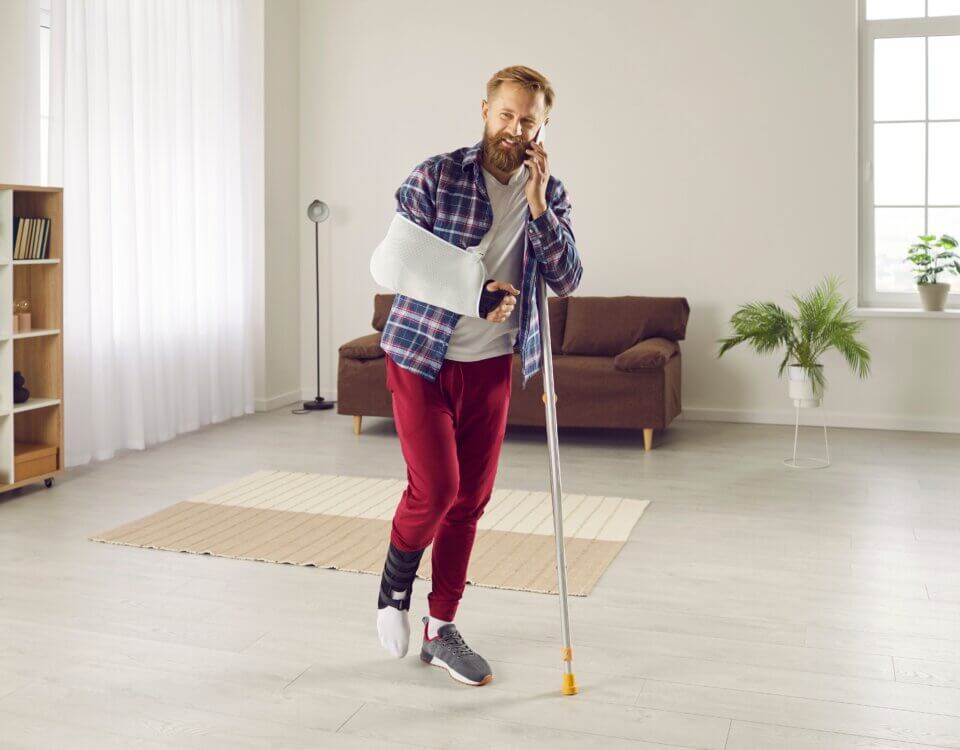Speeding is one of the most common factors in traffic crashes and it significantly increases both the likelihood of crash and the severity of injury. Understanding how speed endangers everyone on the road helps clarify why speeding isn’t just a traffic ticket issue, it’s a serious safety concern.
How Speeding Increases Risk
- Faster speeds reduce the time you have to react to hazards such as sudden stops, pedestrians stepping into the street, or cars turning unexpectedly
- Higher speeds make it harder for vehicles to come to a stop quickly, especially on wet, slippery, or uneven roads
- Speed amplifies crash forces meaning impact is much more likely to cause serious injury or death
Why Injuries Are More Severe in Speed-Related Crashes
- At higher velocities, collisions often lead to more catastrophic damage to vehicles and greater trauma to occupants
- Even a minor collision at high speed can result in broken bones, internal injuries, or head trauma due to sudden deceleration forces
- Pedestrians, bicyclists, and motorcyclists are especially vulnerable—higher vehicle speed gives them less time to avoid impact and usually results in more serious consequences
Common Causes of Speeding
- Drivers underestimating the risk or overestimating their control over the vehicle
- Pressure to reach destinations quickly such as being late for work or appointments
- Road design or environmental factors that encourage speeding, such as wide, straight roads or low traffic enforcement
- Distractions or impaired driving which make it harder to judge safe speed
What You Should Do to Protect Yourself
- Always plan enough travel time so you are not forced to speed
- Pay close attention to speed limit signs and adjust speed for road or weather conditions
- Use cruise control in appropriate situations to avoid unintentional speeding
- Be especially cautious in areas with pedestrians, schools, or heavy traffic
Legal Consequences
- Speeding often contributes to fault in accident investigations. It may increase liability or lead to traffic citations or fines
- Insurance companies may view speeding as negligence and reduce your compensation if speed was a factor in causing the accident or injury
How Hillstone Law Can Help
If you are injured in a crash where speeding may have played a role Hillstone Law can help you determine how speed factored into the accident collect evidence from crash reports, witness statements, or vehicle data evaluate your damages and negotiate with insurance companies or pursue litigation for full compensation for medical treatment, lost income, pain and suffering
Note: These blog posts are created solely for the use of Hillstone Law. The information is gathered from internet research, publicly available sources, and artificial intelligence (AI) tools such as ChatGPT. While we aim to share helpful and educational content, Hillstone Law does not independently verify every detail. Some information may be incomplete, outdated, or subject to change without notice. If you believe any part of a post is inaccurate, misleading, or infringes upon copyright, please contact Hillstone Law immediately so we can review it and take appropriate action, including correction or removal.
Disclaimer: The material provided in these blogs is for general informational purposes only and should not be considered legal advice. Reading these posts does not create, and is not intended to create, an attorney-client relationship with Hillstone Law. Our intent is to share knowledge, raise awareness, and provide helpful resources to the public; however, Hillstone Law makes no warranties or guarantees about the accuracy, completeness, or reliability of the information provided, and expressly disclaims liability for any actions taken in reliance on it. The photos used in these posts are for illustrative purposes only and do not depict actual clients, individuals, or incidents unless expressly stated. If you or a loved one has been injured in an accident, please contact Hillstone Law at (855) 691-1691. Our attorneys are available to answer your legal questions and help you understand your rights.







